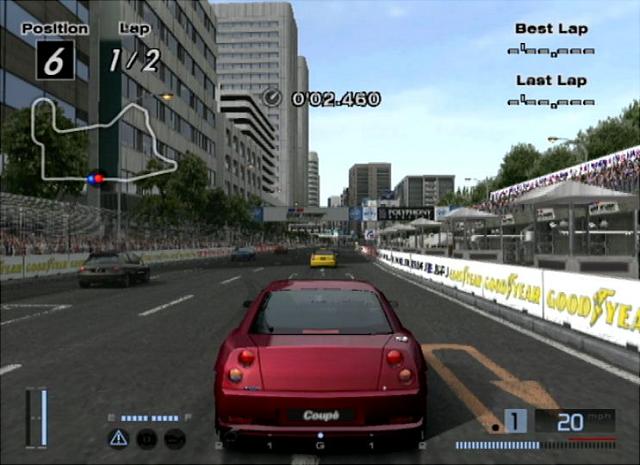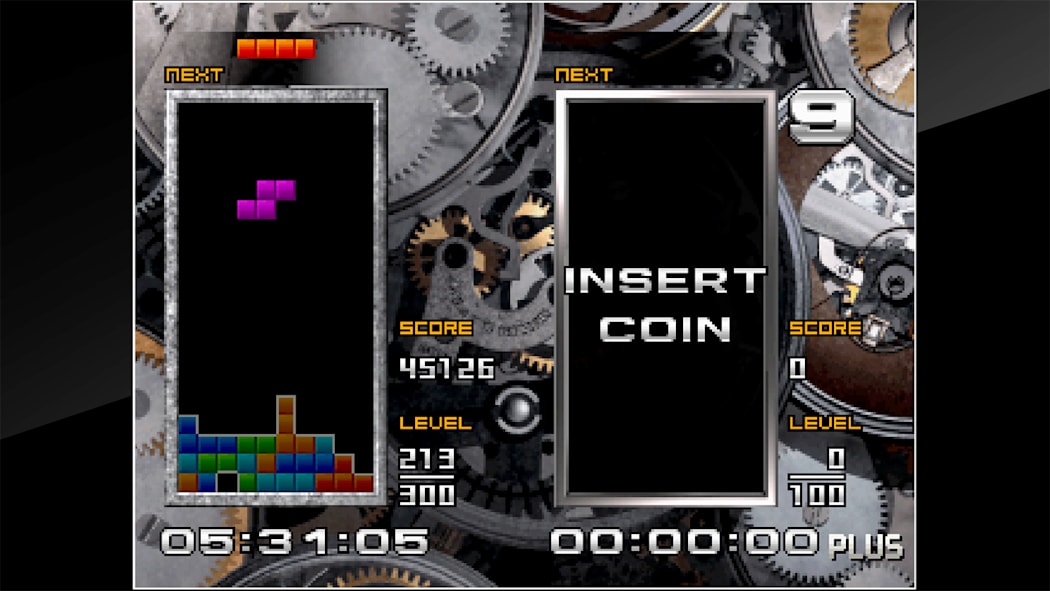Advantages of Non-Combat Action Games
(Edited 2025-02-11: Footnotes, rewording)
I've been playing a ton of Tetris TGM2 and starting to learn Crazy Taxi, which has me thinking a lot about this. The point is not to call combat games trash (they are not) but to understand their disadvantages and limitations.
Real world analogues
Not universally applicable, but the benefits are most easily seen in racing games. Driving is something many people do often, and everyone has constant exposure to in real life. Racing games like Gran Turismo can tap into that to ease the burden of understanding complicated systems like gear shifting and tire traction, while simplifying fiddly elements. [1]

Combat games generally rely on hitbox timings and properties which can be intuitive/"natural" in a more general way, but don't particularly resemble reality. In the worst case, meaningful engagement requires knowledge of obtuse techniques derived from unlifelike state machines and frame data.
Greater accessibility
As much as I love hitting things, having almost every game be about violence turns people off unnecessarily. This point requires nuance and I don't really want to argue it, so I will just make the naked assertion (which you can agree or disagree with) that a reasonable diversity of subject matter is a sign of health in playerbases and developer creativity.
New stagings
Particular aesthetics/premises lend themselves well towards staging particular mechanics. Boghog article:
"Their [beat 'em ups] most deep & interesting interactions are subtle and invisible to the average player (crowd control, positioning, decision making), while their most braindead boring aspects (attacks, combos) are the most well staged and clear. As a result this leads to the impression that the games are much more shallow than they actually are."
Racing games easily stage things like continuous speed conservation, but struggle to stage dynamism as well as combat game enemies (the best they do is probably traffic in Crazy Taxi etc.). Action-puzzlers like Tetris easily stage positioning, both positively when you clear the board and negatively when you are forced to place pieces in bad spots. More generally, having an existing framework guides design naturally along that framework. A complicated and important topic in its own right deserving of much thought.
Unexplored mechanics/dynamics
Starting with a different foundation can open new avenues of exploration. One example is speedup systems, of which combat games' most famous example is turbo mode in the DMC series, which simply increases the game's update rate. [2] This is easy and effective to implement, but hits scaling issues: as decisionmaking speed accelerates, so does input difficulty, which can quickly run out of control.
Tetris TGM incorporates speedup in a more robust and scalable way. Normal Tetris and the early stages of TGM resemble a turn-based game with a turn timer, where you can make easy moves quickly, but can take longer if needed. At later stages, TGM increases piece gravity to such a point that pieces fall instantly, but this is counterbalanced by the locking mechanic [3], which allows you to move fallen pieces around for a short time before they are fully placed. This makes inputs more lenient while preserving fast decisionmaking, resulting in the best of both worlds: the speed scalability of turn-based games alongside the input dynamism of action games.
It's difficult to imagine how one could pull this off within the traditional combat game framework, and similar elegant solutions to longstanding design problems likely exist in uncharted non-combat design space.
This can backfire if a game is sufficiently different from real life for the analogy to be misleading, such as in Crazy Taxi, where holding the shift to drive button significantly alters your handling, despite it being physically nonsensical to "hold" a real gear shifter. Anecdotally, these cases are rare. ↩︎
Used in many other games, ex. Sin and Punishment, Fight 'n Rage. Can also get same effect via speedup in many emulators, and Cheat Engine speedhack in many PC games. ↩︎
As well as a different rotation system that "rolls" the pieces along the ground, a delay between each piece entering, and the ability to start the piece in different rotations by holding the rotate button. ↩︎
